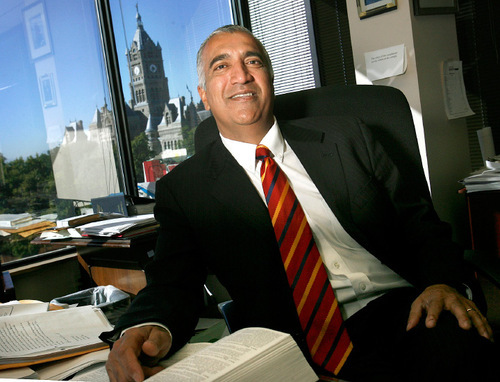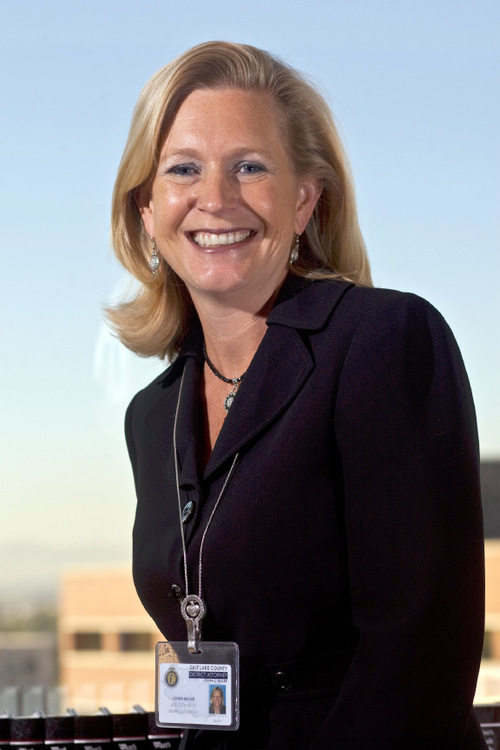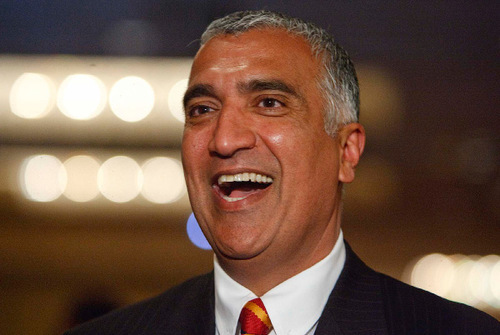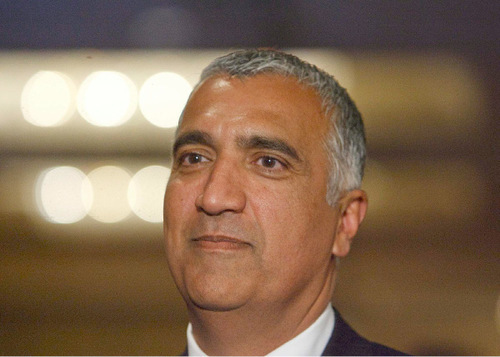This is an archived article that was published on sltrib.com in 2010, and information in the article may be outdated. It is provided only for personal research purposes and may not be reprinted.
In the end, the headline was just three letters: S-I-M.
Four years after their first bruising battle, Democratic challenger Sim Gill wrested the Salt Lake County District Attorney's Office from Republican D.A. Lohra Miller.
In a rematch heavy on headlines and personal barbs, Gill built an early cushion that ended in an 8-percentage-point victory, according to unofficial ballot returns.
Shortly after polls closed, Gill praised his campaign as a bipartisan effort. He also said the Miller camp was disingenuous to cry foul over criticisms. "When you are a leader, you make decisions and you have a record," Gill said. "And you have to defend that record."
Gill pledged to address violent crime and crime against children. He also vowed to decentralize the office, target services to complement local communities and work with the sheriff and County Council on jail overcrowding.
As of early Wednesday, Miller had not conceded.
"He was just so negative this time around," she said late Tuesday. "He falsely represented my record. He held up negative headlines and didn't tell the positive stories behind them."
The contest to crown a D.A. was all about headlines — some good ones, some bad ones — and which ones would sway voters.
Miller hoped news stories chronicling controversies during her past four years wouldn't spoil her shot at a second term. There was much more good than bad, Miller argued, including saving taxpayers millions and improving public safety long term.
Gill, Salt Lake City's top prosecutor, insisted Miller frittered away the public trust. His camp highlighted Miller's wrongful termination of a longtime attorney, questionable hiring practices and poor prosecutorial moves, which Gill said harmed the office's credibility.
"There is a perception and, to a certain extent, a reality that the District Attorney's Office is broken and needs to be fixed," Gill said. "As a public institution, if you lose that public trust, you lose your ability to work effectively."
Miller championed as her campaign centerpiece a criminal-justice plan that aims to resolve up to a third of all cases within 30 days. She proudly pointed to the creation of specialized prosecution teams for domestic violence, elder abuse and felony DUI cases. (The domestic violence conviction rate reportedly jumped from 30 percent to 70 percent on Miller's watch.) And she advocated — having helped arrange a land deal — a permanent downtown D.A. building that is expected to save taxpayers between $1.6 million and $6.6 million.
Gill, who ranked restoring public trust as his top priority, vowed to work more collaboratively with valley law enforcement. He also pledged to improve employee morale and dismantle "boutique" prosecution teams.
Reporters Katie Drake and Cathy McKitrick contributed to this story.











